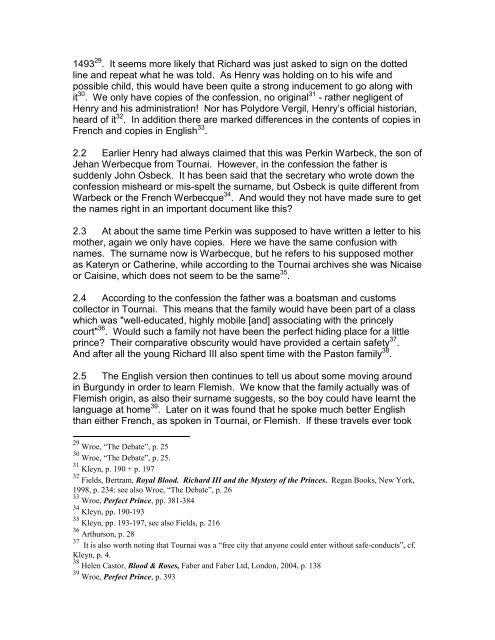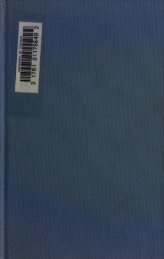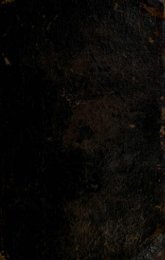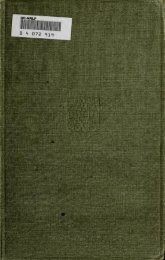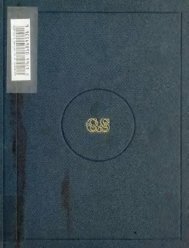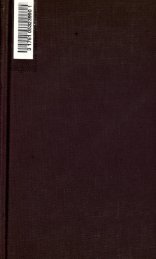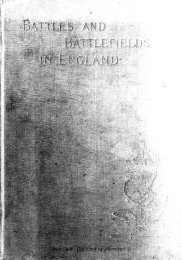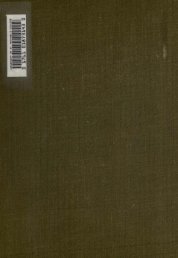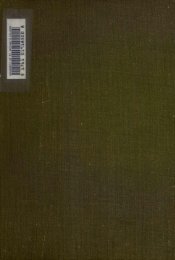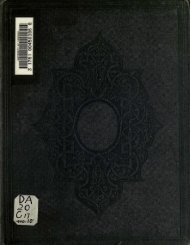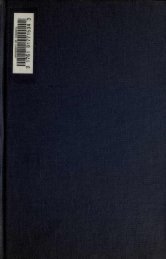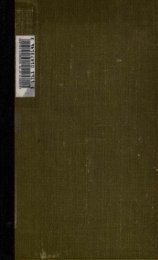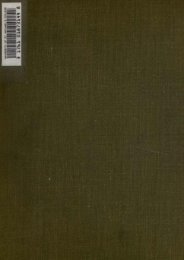Perkin Warbeck (NZ version) - Richard III Society - New Zealand ...
Perkin Warbeck (NZ version) - Richard III Society - New Zealand ...
Perkin Warbeck (NZ version) - Richard III Society - New Zealand ...
You also want an ePaper? Increase the reach of your titles
YUMPU automatically turns print PDFs into web optimized ePapers that Google loves.
1493 29 . It seems more likely that <strong>Richard</strong> was just asked to sign on the dotted<br />
line and repeat what he was told. As Henry was holding on to his wife and<br />
possible child, this would have been quite a strong inducement to go along with<br />
it 30 . We only have copies of the confession, no original 31 - rather negligent of<br />
Henry and his administration! Nor has Polydore Vergil, Henry’s official historian,<br />
heard of it 32 . In addition there are marked differences in the contents of copies in<br />
French and copies in English 33 .<br />
2.2 Earlier Henry had always claimed that this was <strong>Perkin</strong> <strong>Warbeck</strong>, the son of<br />
Jehan Werbecque from Tournai. However, in the confession the father is<br />
suddenly John Osbeck. It has been said that the secretary who wrote down the<br />
confession misheard or mis-spelt the surname, but Osbeck is quite different from<br />
<strong>Warbeck</strong> or the French Werbecque 34 . And would they not have made sure to get<br />
the names right in an important document like this?<br />
2.3 At about the same time <strong>Perkin</strong> was supposed to have written a letter to his<br />
mother, again we only have copies. Here we have the same confusion with<br />
names. The surname now is Warbecque, but he refers to his supposed mother<br />
as Kateryn or Catherine, while according to the Tournai archives she was Nicaise<br />
or Caisine, which does not seem to be the same 35 .<br />
2.4 According to the confession the father was a boatsman and customs<br />
collector in Tournai. This means that the family would have been part of a class<br />
which was "well-educated, highly mobile [and] associating with the princely<br />
court" 36 . Would such a family not have been the perfect hiding place for a little<br />
prince? Their comparative obscurity would have provided a certain safety 37 .<br />
And after all the young <strong>Richard</strong> <strong>III</strong> also spent time with the Paston family 38 .<br />
2.5 The English <strong>version</strong> then continues to tell us about some moving around<br />
in Burgundy in order to learn Flemish. We know that the family actually was of<br />
Flemish origin, as also their surname suggests, so the boy could have learnt the<br />
language at home 39 . Later on it was found that he spoke much better English<br />
than either French, as spoken in Tournai, or Flemish. If these travels ever took<br />
29<br />
Wroe, “The Debate”, p. 25<br />
30<br />
Wroe, “The Debate”, p. 25.<br />
31<br />
Kleyn, p. 190 + p. 197<br />
32<br />
Fields, Bertram, Royal Blood. <strong>Richard</strong> <strong>III</strong> and the Mystery of the Princes. Regan Books, <strong>New</strong> York,<br />
1998, p. 234: see also Wroe, “The Debate”, p. 26<br />
33 Wroe, Perfect Prince, pp. 381-384<br />
34 Kleyn, pp. 190-193<br />
35 Kleyn, pp. 193-197, see also Fields, p. 216<br />
36 Arthurson, p. 28<br />
37 It is also worth noting that Tournai was a “free city that anyone could enter without safe-conducts”, cf.<br />
Kleyn, p. 4.<br />
38 Helen Castor, Blood & Roses, Faber and Faber Ltd, London, 2004, p. 138<br />
39 Wroe, Perfect Prince, p. 393


